Analysis of semaglutide for Type 2 diabetes mellitus, June 2024
Page last updated: 22 November 2024
Drug utilisation sub-committee (DUSC)
June 2024
Abstract
Purpose
To review the utilisation of PBS listed semaglutide for the treatment of type 2 diabetes mellitus (T2DM), as requested by DUSC at its February 2024 meeting. The review also considered the utilisation of semaglutide in context with other glucagon-like peptide 1 (GLP-1) analogues.
Date of listing on the Pharmaceutical Benefits Scheme (PBS)
Dulaglutide was PBS listed on 1 June 2018 and semaglutide was PBS listed on 1 July 2020.
Data Source / methodology
Data extracted from the PBS database maintained by the Department of Health and Aged Care, processed by Services Australia were used for the analyses. Prescription data were extracted from 1 January 2016 up to and including 31 December 2023 based on the date of supply. Patients who were only supplied insulin in this period were excluded as they were likely to be patients with type 1 diabetes.
Key Findings
- In 2023 there were approximately 1.6 million patients supplied one or more medicines through the PBS for T2DM, and 325,993 patients who were supplied semaglutide or dulaglutide, and 120,374 initiators to semaglutide or dulaglutide. Of the 120,374 initiators to either semaglutide or dulaglutide, 94% (113,058) were supplied semaglutide, compared to 6% (7,316) who were supplied dulaglutide.
- In 2023 there were 1,989,952 prescriptions of semaglutide supplied to 292,848 patients, and 404,703 prescriptions of dulaglutide were supplied to 80,576 patients.
- Due to the medicine shortage of semaglutide and dulaglutide, 12,330 patients initiated these medicines in the fourth quarter of 2022, compared to 32,648 in the fourth quarter of 2021.
- There were 16,077 patients who initiated a flozin or a gliptin after treatment with semaglutide or dulaglutide in the fourth quarter of 2022, compared with 4,574 patients in the fourth quarter of 2021.
- Of the patients who initiated onto therapy in 2018, 46% were initiated by GPs and 50% of patients were initiated by Endocrinology or Internal Medicine specialists, of the patients who initiated onto therapy in 2023, 81% were initiated by GPs and 13% of patients were initiated by Endocrinology or Internal Medicine specialists.




